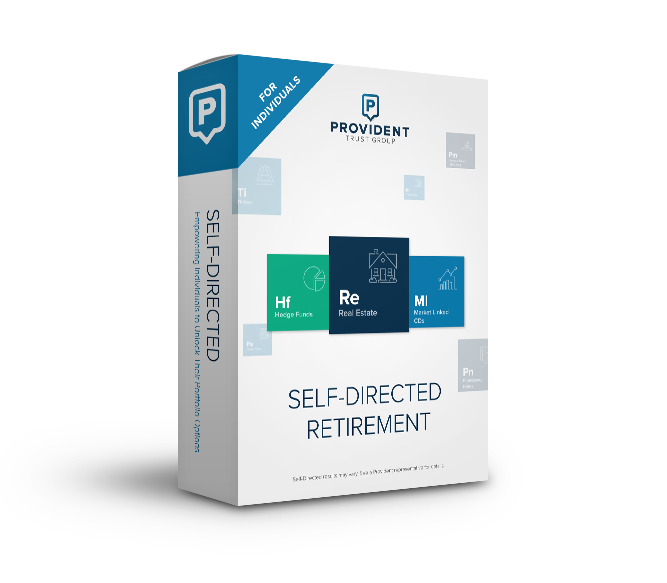Fast. Easy. Secure.
Our online account portal will walk you through the process, step by step.

Roth IRA
A Roth Individual Retirement Account (IRA) is a retirement account which lets you save and invest after-tax dollars. When you originally contribute funds in your Roth IRA, they have already been taxed. As time goes on, the investments grow tax free if certain requirements are satisfied and there are no additional taxes on regular contributions because you have already paid taxes on these funds.
In a Roth IRA, you can make investments to increase the value of your account and collect more money for your ideal retirement. The only limitations on the investments made in a Roth IRA are those restricted by the IRS, and include a very limited number of items.
Roth IRA contributions must be made with earned income, and that income must fall within certain Modified Adjusted Gross Income (MAGI) limits.
TAX-FREE GROWTH
Tax-free growth on all contributions placed into your account over time.
All regular contributions made to a Roth IRA can be withdrawn at any time (tax-free) as these contributions are already taxed, if certain requirements are satisfied.
NO DISTRIBUTION REQUIREMENTS
A Roth IRA does not require you take distributions based on age, unlike other tax-deferred retirement plans such as a Traditional IRA or a 401(k) Plan.
TAX FREE WITHDRAWALS
Roth IRA distributions, including the withdrawal of earnings, may be tax-free if certain requirements are met.
FIRST-TIME HOME BUYER
Up to $10,000 can be withdrawn from a Roth IRA, penalty free, if the money is used to acquire a principal residence for a first-time home buyer. The owner must be the Roth IRA’s owner, their spouse, or their lineal ancestors and descendants. The individual cannot have owned a home in the previous 24 months.
NOTE: Please visit www.irs.gov for a complete breakdown of the rules and regulations concerning ROTH IRAs. Certain restrictions apply regarding prohibited transactions.
| 2023 | 2022 | |
|---|---|---|
| For Tax Year 2020 | ||
| Contribution Limits | $6,500 | $6,000 |
| Catch-Up Contribution (Age 50 or Older) |
$1,000 | $1,000 |
| Total Contribution Amount (Age 50 or Older) |
$7,500 | $7,000 |
ROTH IRA MAGI PHASE-OUT RANGES
| 2023 | 2022 | |
|---|---|---|
| For Tax Year 2020 | ||
| Single Individuals | $138,000 – $153,000 | $129,000 – $144,000 |
| Married (Filing Jointly) |
$218,000 – $228,000 | $204,000 – $214,000 |
| Married (Filing Separately) |
$0 – $10,000 | $0 – $10,000 |
This material is provided for general educational and informational purposes only and should not be considered to be legal, tax or investment advice. Provident Trust Group, LLC is a non-discretionary, passive, directed custodian that does not sell or solicit investments and does not provide investment advice or recommendations. Provident Trust Group, LLC is not obligated to review and does not endorse any investment or investment advisor, and individuals are responsible for the investments in their accounts. Consult with a tax and/or financial advisor to determine what may be best for your individual needs.
Frequently Asked Questions
Here are a few of the most frequently asked questions when opening a self-directed account.
How do your fees differ from other custodians who handle traditional & alternative assets?
Provident Trust Group offers a flat-rate annual fee. This differs from many other alternative asset custodians who may increase your annual fee based on an increase in the number of assets you select, value of your assets, or even the purchase of a different asset class.
Most custodians of traditional assets collect fees and/or commissions based off of the amount of trades or recommendations of investment choices. For our full fee schedule, click here.
Can Provident Trust Group provide tax or legal advice regarding your investment?
No. If you should need tax or legal advice regarding your investment, you may engage a specialized tax law firm to provide the needed advice.
What types of investments are prohibited with retirement accounts?
The IRS does not state which investments are permissible in a qualified account or retirement plan, but they do state specific asset classes that are prohibited. The IRS currently prohibits IRAs from investing in Life Insurance, Collectibles and S-Corps. Some examples of collectibles, include:
- Artwork,
- Rugs,
- Antiques,
- Metals – with exceptions for certain kinds of bullion,
- Gems,
- Stamps,
- Coins – (but there are exceptions for certain coins),
- Alcoholic beverages, and
- Certain other tangible personal property.
For more information, click here for the IRS Website.
Can my account invest with other partners, including myself?
Yes, your IRA can invest with other partners and yourself individually. However, it is important to consult legal counsel in these situations to observe formalities and rules that may be associated with that investment.
Not Sure What Plan Is Right For You?
Take a minute or two and compare similar plans that may be the right fit for your needs.
The Provident Advantage
Our approach focuses on delivering clear and concise information so you can make well-informed decisions regarding your investments. Our clients rely on our abilities to ensure every administrative and reporting detail is covered and completed on time.
IRS Required Reporting
Record Keeping
IRA & Qualified Plan Administration
Transfer Processing
Alternative Asset Custody
Rollover Assistance
Self-Directed Education
Contribution Processing
Distribution Processing
Your investment freedom is a click away
 OPEN AN ACCOUNT
OPEN AN ACCOUNT
Our completely electronic application process will have you set up in minutes.
 FUND YOUR ACCOUNT
FUND YOUR ACCOUNT
Transfer or Rollover old or non-performing retirement assets.
 START INVESTING
START INVESTING
Enjoy investment freedom with a truly self-directed retirement account.
Our simple online process makes setup a breeze so you can focus on what matters most – your retirement.
Our 100% web-based process provides easier form completion and clearer view of holdings and transactions that will assist customers in opening new accounts securely and quickly without any physical paperwork. Customers can also complete fund transfers from other custodians, electronically initiate investments, as well as manage multiple accounts with a click of a button.

